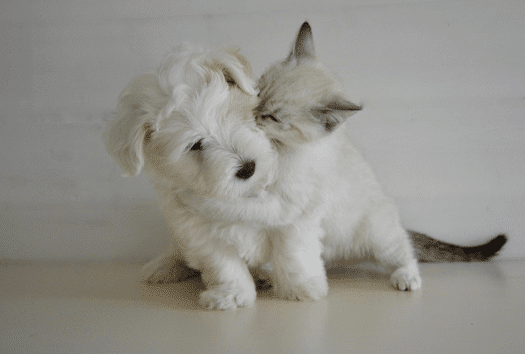It’s something no pet parent wants to contemplate—the idea that their precious cat or dog could have swallowed something poisonous or encountered a hazardous substance around the home. As unpleasant this thought may be, it’s essential that all pet owners be aware of possible dangers lurking in the house or backyard that their animals may meet. Because the threat of poisoning can affect any family, National Poison Prevention Week is observed nationwide during the third week in March (this year between March 18th and the 24th), with the goal of raising awareness of the potential dangers posed by cleaning products, medicines, pesticides, food poisoning and more. To avoid a trip to the emergency vet and possible tragedy, read on to discover some of the most common toxic or otherwise harmful household hazards your pet may encounter.
Common Household and Backyard Poisons to Watch Out For
If you’re like most pet owners, you go out of your way to ensure that your pets are kept safe and contented, from the food that you give them to the choice of toys you provide. However, many everyday household products or plants may be dangerous to your pet.
Human medications pose one of the most easily avoided causes of poisoning in pets. Just as parents of small children are advised to keep all medicines securely out of reach, the same thing goes for pet owners as well. Thankfully, your furry friend likely lacks opposable thumbs, so merely ensuring that all pill bottles are shut tight and that no medications are left out in the open will probably do the trick. Similarly, you should never give your pet drugs intended for human use unless directed to by a vet.
Many popular types of houseplants and backyard ornamentals are also potentially dangerous for our pets. Among the most lethal and most common ones found in warmer climates is the sago palm. This innocuous looking plant can cause severe liver damage or failure when ingested by dogs. Other plants wary pet owners should keep an eye out for are most varieties of lilies, morning glories, oleander, and poinsettia. If you suspect that your pet has chewed on or eaten a part of a poisonous plant, or they are vomiting or showing signs of distress, be sure to bring them in to see an emergency vet as soon as possible.
Why You Should Watch What You Put in Your Doggy Bag
While your dog or cat is undoubtedly a part of the family that does not mean that everything that you eat is safe for them as well. In fact, a wide variety of human foods can make our animal friends quite ill. Some of these stomach-turning treats include onions, garlic, chocolate, raisins or grapes, macadamia nuts and sugarless gum (or anything containing the additive xylitol). In small amounts, many of these foods just cause nausea or perhaps some vomiting, while others are so potentially harmful that even a tiny nibble could put your pet’s life at risk.
Why risk giving your pet a stomach ache? Be sure to check with your vet about safe human food offerings (including well-cooked turkey and spinach for dogs or fish for your cat) before you give in to their begging.
Safe Ways to Pamper Your Pet Each Day
Now that you know of some of the most common household dangers to be aware of when it comes to keeping your pets free from harm, you may be curious about how you can treat your pet in a loving, safe and healthy way. One of the best ways to show your pet that you love them is by providing them with their own private, comfy place to lie down, such as with a custom pet bed designed by you from J’adore. Whether you choose one of our popular reversible cuddle pet beds or treat your furry companion to a plush and luxurious throne bed, you can rest assured that they will have a safe place to call their own.
